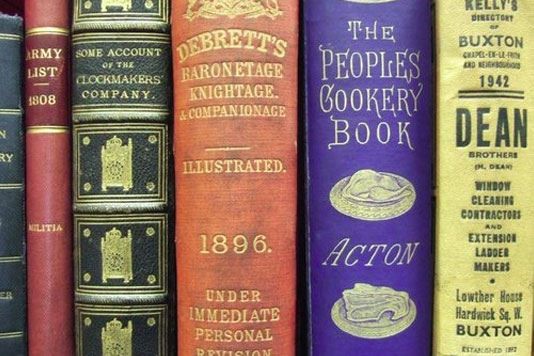Meet the biggest collection of cookery books in the UK

It's not as well known as Borough Market, but if you're a food enthusiast and bibliophile, you have to visit London's Guildhall library. Here Dr Peter Ross tells us about some of the highlights
London's Guildhall Library has the largest public collection of cookery, food and drink related books in the UK. Standing at over 10,000 at the last count, it includes the personal libraries of Andre Simon, Elizabeth David and Christopher Driver (editor of the Good Food Guide). So what can you learn from over 600 years of food and drink books? Well, look at enough books on English food and you realise that some things are a constant - Shrewsbury cakes always make an appearance, the recipe essentially unchanged for hundreds of years. Similarly, the earliest book in the collection, a 1531 Venetian edition of Rosselli’s Epulario, was, like many modern cookery books, almost entirely stolen from another author.
A gammon of badger
The collection can demonstrate a thousand things to do with a leg of lamb, but it will also show you how to create a gammon of badger (from 1736), stuff a porpoise (from 1450), roast a pound of butter (from 1615) or tell if a gull is fresh by pulling its leg (from 1758).
You can discover that our Tudor London ancestors put ‘sparrow nesting pots’ on the outside of their houses; not in some proto-RSPB concern for the welfare of birds, but to supply barely fledged chicks for serving on toast or for roasting on skewers. We might be horrified by the recent horsemeat scandal, but the 16th century peasant was clearly glad of the protein. Meanwhile the noble, aristocratic and regal houses and palaces thought nothing of munching on peacocks, larks, minnow, vipers, and chopped brain fritters.
England on a plate
Although Guildhall Library’s collection covers international cuisines, it is English cookery books that make up a large proportion of the collection. The collection demonstrates and confirms that English food has gone through cycles of innovation and decline, from highpoints in the early 17th and late 18th centuries to perceived doldrums in the 1930s and 40s. By trawling the collection we can also trace the dire influence of French cuisine that has dogged English food for a millennium. It's not that we all started eating French style food and forgot about our home grown delights, but that 'good' food, and therefore 'posh' food, had to be ‘Frenchified’. This certainly happened at least three times in our history – the Norman Conquest, the Restoration of Charles II, and following the French Revolution (the Regency and the reign of George IV). After each cultural ‘invasion’ French food was perceived as being for the elite and, by inference therefore, English food was for everyone else and it became unfashionable, vilified and, to a certain extent, unrecorded.
The influence of the French
Even Hannah Glasse, who attacked the influence of French food, failed to take her own advice and chose to include French influenced recipes in her Art of Cookery (1747). Several times we have escaped the influence of French cuisine and we are certainly going through one of those periods at the moment, when instead of aping our continental neighbours we take the best of many cuisines, including our own, and become highly creative and innovative cooks. A collection of this vast scope shows that we have been here before; it can lead to the rediscovery of the best and indeed worst of recipes, but it can also inspire future food writers, chefs, cooks and, most importantly, we who love to eat.
Dr Peter Ross is the Principal Librarian at the Guildhall Library. You can visit the collection Monday to Saturday 9.30am - 5pm. There's also a programme of talks and events which are well worth visiting. Check website for details. He's also the author of The Curious Cookbook.
The cookery books chefs reach for
What's the future for cookbooks?
Elizabeth David: the woman who changed the way we cook
How many dishes can you cook without a recipe?
The best food book you've probably never heard of
Five classic food writers you have to read
Comments
Be the first to comment
Do you want to comment on this article? You need to be signed in for this feature